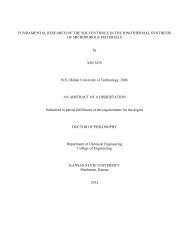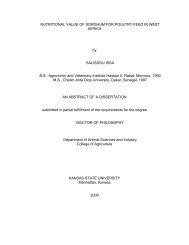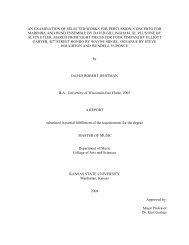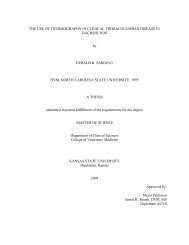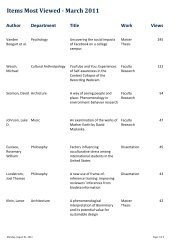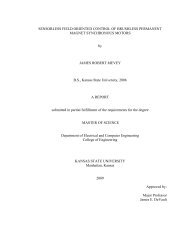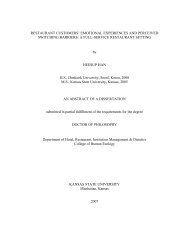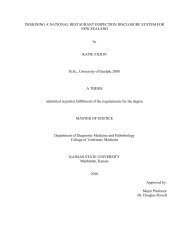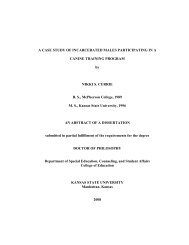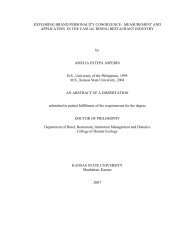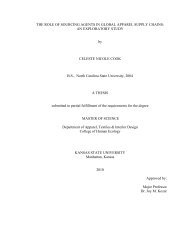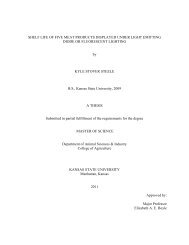SELFISH INTENTIONS - K-REx - Kansas State University
SELFISH INTENTIONS - K-REx - Kansas State University
SELFISH INTENTIONS - K-REx - Kansas State University
Create successful ePaper yourself
Turn your PDF publications into a flip-book with our unique Google optimized e-Paper software.
had availed themselves of the quickest American divorce procedure: simply walking away. Yet<br />
<strong>Kansas</strong> law provided protections for women that made these cases considerably less traumatic<br />
than they might have been, and in both cases, a woman was able to use liberal divorce law to<br />
retain financial security without a husband. In addition, it appears that neither Mrs. Selts nor<br />
Mrs. Holtzgang was socially penalized for their actions. They remained successful<br />
businesswomen after their divorce because their community accepted their divorces.<br />
The legal statutes in <strong>Kansas</strong> remained the same from 1868 until 1909. In 1909, the<br />
legislature decided it needed to revise the statutes. In the 1909 statutes, grounds for divorce<br />
remained the same as previously written in 1868. However, the legislature strengthened the<br />
subsequent qualifications and procedures for a divorce. In particular, the legislature added a<br />
section to the statute that addressed the property of the wife. While the 1868 statutes noted that a<br />
wife could be restored to her maiden name and her husband may be required to pay alimony, it<br />
did not address the property that the wife either brought into the marriage or obtained during the<br />
marriage. The 1909 statute provided:<br />
When a divorce shall be granted by reason of the fault or aggression of the<br />
husband, the wife shall be restored to her maiden name if she so desires, and also<br />
to all the property, lands, tenements, hereditaments owned by her before her<br />
marriage or acquired by her in her own right after such marriage, and not<br />
previously disposed of, and shall be allowed such alimony out of the husband’s<br />
real and personal property as the court shall think reasonable, having due regard<br />
to the property which came to him by marriage and the value of his real and<br />
personal estate at the time of said divorce; …payable either in gross or in<br />
installments, as the court may deem just and equitable. 97<br />
97 <strong>State</strong> of <strong>Kansas</strong> Session Laws 1909, Chapter 182, Article 28, Section 673.<br />
37



